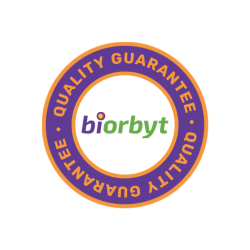You have no items in your shopping cart.
Cart summary

AMFR Protein, Human, Recombinant (His)
Catalog Number: orb1978655
| Catalog Number | orb1978655 |
|---|---|
| Category | Proteins |
| Description | E3 ubiquitin-protein ligase that mediates the polyubiquitination of lysine and cysteine residues on target proteins, such as CD3D, CYP3A4, CFTR, INSIG1, SOAT2/ACAT2 and APOB for proteasomal degradation. Component of a VCP/p97-AMFR/gp78 complex that participates in the final step of endoplasmic reticulum-associated degradation (ERAD). The VCP/p97-AMFR/gp78 complex is involved in the sterol-accelerated ERAD degradation of HMGCR through binding to the HMGCR-INSIG1 complex at the ER membrane. In addition, interaction of AMFR with AUP1 facilitates interaction of AMFR with ubiquitin-conjugating enzyme UBE2G2 and ubiquitin ligase RNF139, leading to sterol-induced HMGCR ubiquitination. The ubiquitinated HMGCR is then released from the ER into the cytosol for subsequent destruction. In addition to ubiquitination on lysine residues, catalyzes ubiquitination on cysteine residues: together with INSIG1, mediates polyubiquitination of SOAT2/ACAT2 at 'Cys-277', leading to its degradation when the lipid levels are low. Catalyzes ubiquitination and subsequent degradation of INSIG1 when cells are depleted of sterols. Mediates polyubiquitination of INSIG2 at 'Cys-215' in some tissues, leading to its degradation. Also regulates ERAD through the ubiquitination of UBL4A a component of the BAG6/BAT3 complex. Also acts as a scaffold protein to assemble a complex that couples ubiquitination, retranslocation and deglycosylation. Mediates tumor invasion and metastasis as a receptor for the GPI/autocrine motility factor. In association with LMBR1L and UBAC2, negatively regulates the canonical Wnt signaling pathway in the lymphocytes by promoting the ubiquitin-mediated degradation of CTNNB1 and Wnt receptors FZD6 and LRP6. |
| Tag | N-6xHis |
| Purity | 98.00% |
| MW | 14.1 kDa (predicted) |
| UniProt ID | Q9UKV5 |
| Protein Sequence | NSPVERPSSDQEEGETSAQTERVPLDLSPRLEETLDFGEVEVEPSEVEDFEARGSRFSKSADERQRMLVQRKDELLQQARKRFLNKS |
| Expression System | E. coli |
| Biological Origin | Human |
| Biological Activity | E3 ubiquitin-protein ligase that mediates the polyubiquitination of lysine and cysteine residues on target proteins, such as CD3D, CYP3A4, CFTR, INSIG1, SOAT2/ACAT2 and APOB for proteasomal degradation. Component of a VCP/p97-AMFR/gp78 complex that participates in the final step of endoplasmic reticulum-associated degradation (ERAD). The VCP/p97-AMFR/gp78 complex is involved in the sterol-accelerated ERAD degradation of HMGCR through binding to the HMGCR-INSIG1 complex at the ER membrane. In addition, interaction of AMFR with AUP1 facilitates interaction of AMFR with ubiquitin-conjugating enzyme UBE2G2 and ubiquitin ligase RNF139, leading to sterol-induced HMGCR ubiquitination. The ubiquitinated HMGCR is then released from the ER into the cytosol for subsequent destruction. In addition to ubiquitination on lysine residues, catalyzes ubiquitination on cysteine residues: together with INSIG1, mediates polyubiquitination of SOAT2/ACAT2 at 'Cys-277', leading to its degradation when the lipid levels are low. Catalyzes ubiquitination and subsequent degradation of INSIG1 when cells are depleted of sterols. Mediates polyubiquitination of INSIG2 at 'Cys-215' in some tissues, leading to its degradation. Also regulates ERAD through the ubiquitination of UBL4A a component of the BAG6/BAT3 complex. Also acts as a scaffold protein to assemble a complex that couples ubiquitination, retranslocation and deglycosylation. Mediates tumor invasion and metastasis as a receptor for the GPI/autocrine motility factor. In association with LMBR1L and UBAC2, negatively regulates the canonical Wnt signaling pathway in the lymphocytes by promoting the ubiquitin-mediated degradation of CTNNB1 and Wnt receptors FZD6 and LRP6. |
| Expression Region | 515-601 aa |
| Storage | -20°C |
| Note | For research use only |
| Application notes | Reconstitute the lyophilized protein in sterile deionized water. The product concentration should not be less than 100 μg/mL. Before opening, centrifuge the tube to collect powder at the bottom. After adding the reconstitution buffer, avoid vortexing or pipetting for mixing. |
| Expiration Date | 6 months from date of receipt. |


